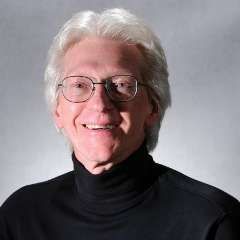The surfeit of musical activity and great performers in Prague tends to overshadow the rest of the Czech Republic, which is a shame. The Central European tradition and training are just as strong throughout the rest of the country, which means that it is entirely possible to hear interesting programs and outstanding musicians in cities like Brno, Ostrava, Hradec Králové or even Mariánské Lázně, a spa town (better-known as Marienbad) that hosts an annual Chopin Festival. One of the viritues of Prague Spring is its tradition of bringing this outlying talent to the capital, where both tourists and locals frequently have their eyes (and ears) opened.
By any measure, the Brno Philharmonic is one of the best orchestras in the country. Its roots reach back to the 1870s, when a young Leoš Janáček was part of an effort to establish a symphony orchestra in the capital of South Moravia. The current incarnation of the orchestra was established by merging two others in 1956, and along with running a full subscription season and several festivals, it records and tours abroad regularly. Central to its mission is keeping Janáčekʼs legacy and the spirit of modern music alive and thriving.
All of which made the orchestra a natural choice for a high-powered program of Schnittkeʼs Faust Cantata (“Seid nüchtern und wachet”) and Holstʼs The Planets. At the podium was contemporary music specialist Dennis Russell Davies. The day before, Davies noted at a press conference that he last appeared at Prague Spring 25 years ago and joked, “They liked me so much, they invited me back.” But no more than a few minutes into the performance, it was clear that Davies was a natural and perfect choice as well.
In keeping with its title, the Faust Cantata is fiendishly difficult to perform. It requires a full orchestra and mixed chorus, an unusual combination of soloists – baritone, tenor, countertenor and contralto – and enough electronics to amplify a portion of the piece. Schnittke worked for 12 years on the full opera Historia von D. Johann Fausten; the cantata, which comprises the third act, was a commission for the 1983 Wiener Festwochen. It picks up the Faust story with the doomed doctor about to face his terrible fate and the devil chortling in victory.
The cantata opens with an ominous thumping and then a countervailing choral melody, a tension maintained throughout by never less than two melodies, tones or tempos going simultaneously in opposite directions. Moreover, Schnittke was what is politely called a polystylist, which means there are frequent and abrupt changes in style, tone and texture. The composer was also a genius at getting decidedly non-orchestral sounds out of the orchestra, which means a running stream of clanking, buzzing and other bizarre sonic and mechanical effects. The only touching moment, a beautiful duet between the contralto and countertenor, is backed by what sounds like funeral music for robots.
None of which is to disparage the piece, which is brilliant. But it takes considerable skill to pull off, especially with the clarity and transparency of this performance. Davies pulled together all the disparate elements with masterful precision and split-second timing, giving the music a strong organic core and great operatic sweep. The musicians were uniformly spot-on, and the Czech Philharmonic Choir Brno showed why it is considered one of the country’s finest vocal ensembles.
The soloists handled difficult vocal lines and recitative with aplomb, in particular Kateřina Jalovcová singing the devil’s final song of triumph, which is diabolically written as a tango. Suddenly the mike was on and she turned into a torch singer, belting out a soulful lament that matched the pitch and intensity of the full chorus and a pounding rhythm section behind her.
Following that, even The Planets seemed anticlimactic. Davies did a nice job rounding off some of the harsher edges and giving the music an attractive sparkle in Venus and Mercury. The more robust Jupiter and Saturn sounded formulaic, but Neptune provided a lustrous finish, once again with a fine, if brief, showing from the chorus.
If it’s possible for The Planets to be understated, that was certainly the case here. But then, after Schnittke’s Faust, what wouldn’t be?


